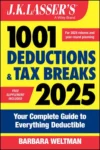Supreme Court Limits Deduction for Trust’s Investment Advisory Fees
It’s rare for the U.S. Supreme Court to take on a tax case, but it just handed down a unanimous decision that affects income tax deductions for trusts.
Background
A trust for the family of Pepperidge Farm founder Henry Rudkin engaged professional investment advisors to help manage trust assets. The trustee deducted the investment advisory fees in full.
Generally, miscellaneous deductions of a trust are subject to the same limitation as those for individuals; they can only be deducted to the extent they exceed 2% of adjusted gross income (“the 2% floor”). However, expenses of a trust that would not be incurred if property were not held in such trust can be deducted without regard to the 2% floor.
Court’s position
According to the Supreme Court, investment advisory fees for a trust are not uncommon, unusual or unlikely to be incurred by an individual, so they are subject to the 2% floor. In other words, if an individual could pay for an expense and deduct it subject to the 2% floor, then a trust’s payment of that same expense would also be subject to that floor.
The court left open the possibility that if an investment advisor imposed a special, additional charge applicable only to trusts, then such special charge could be fully deductible.
Earned income
Compensation for performing personal services. You must have earned income for a deductible IRA or to claim the earned income credit.



